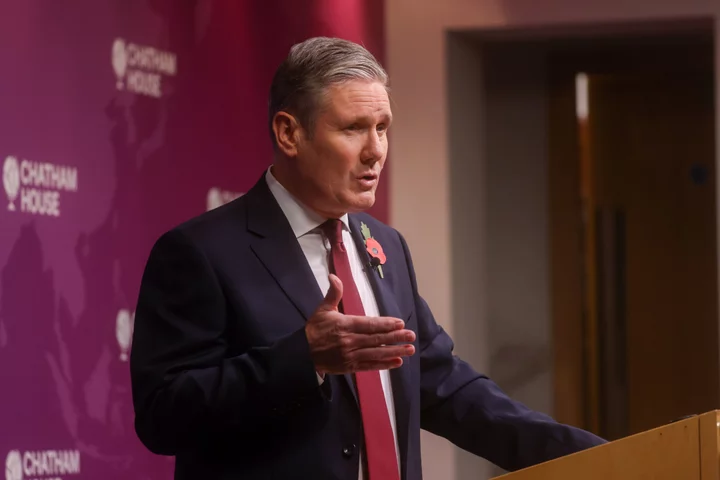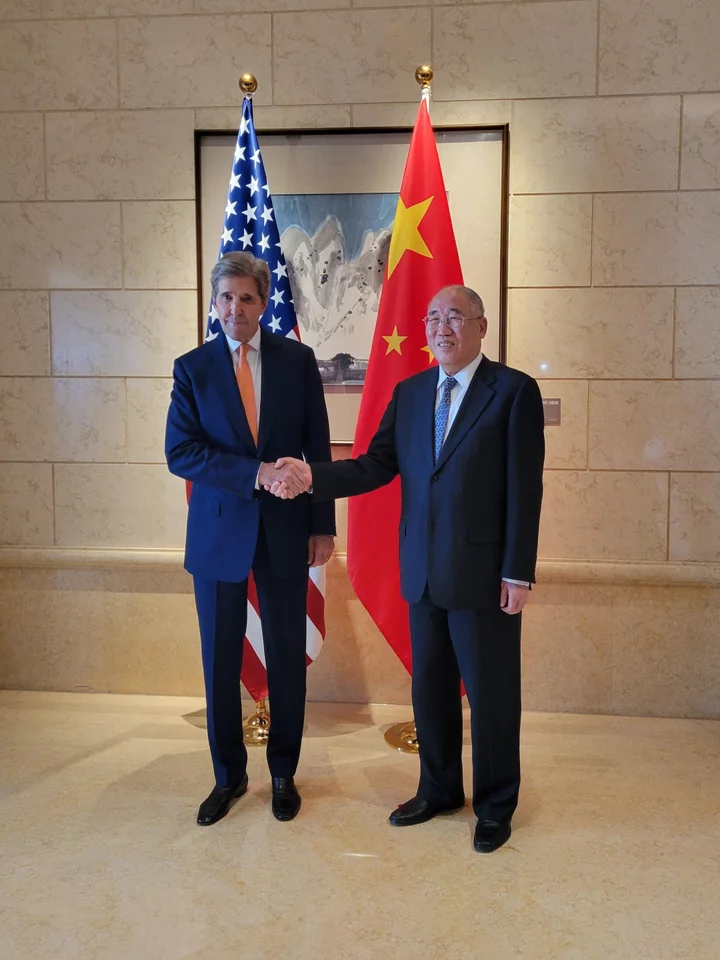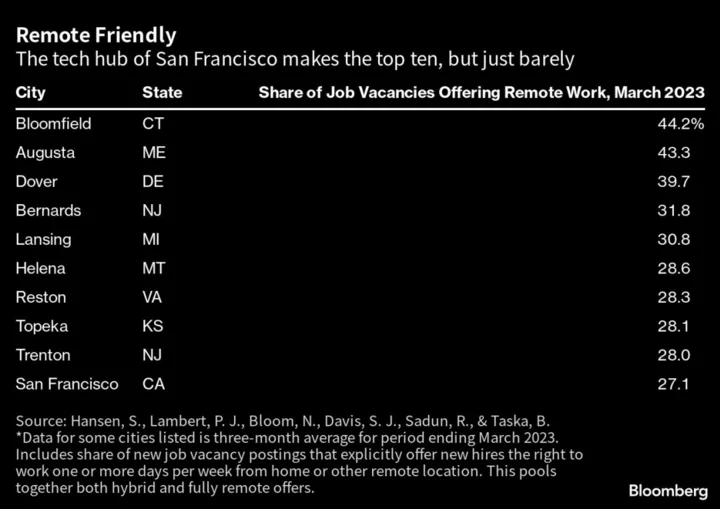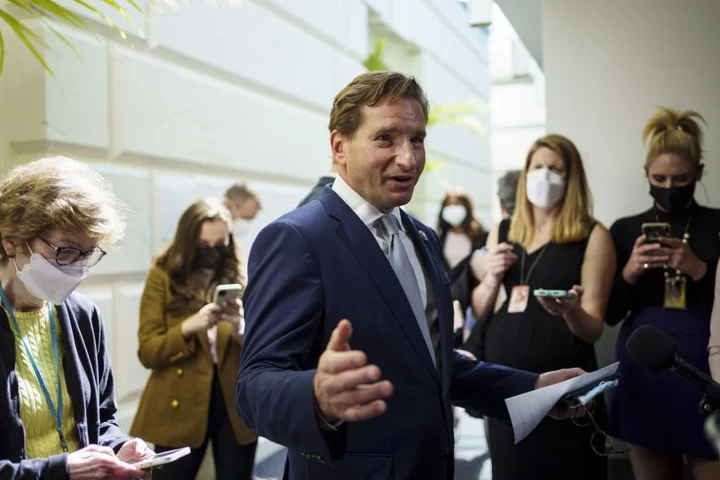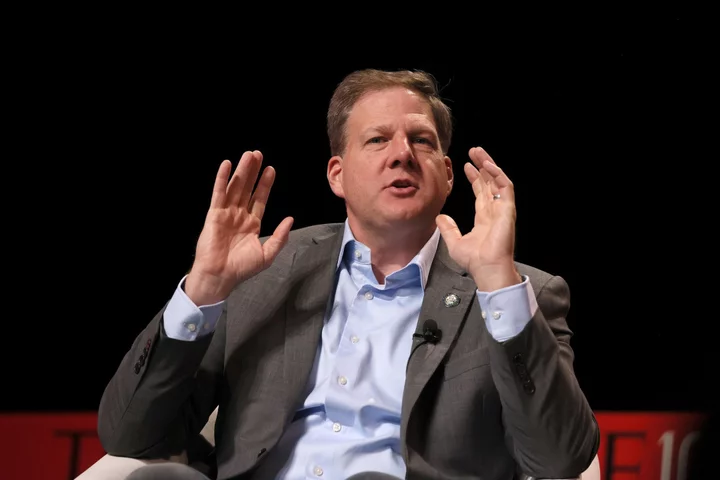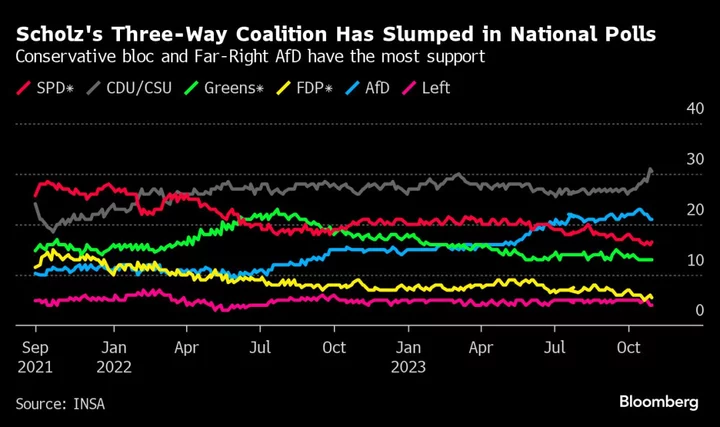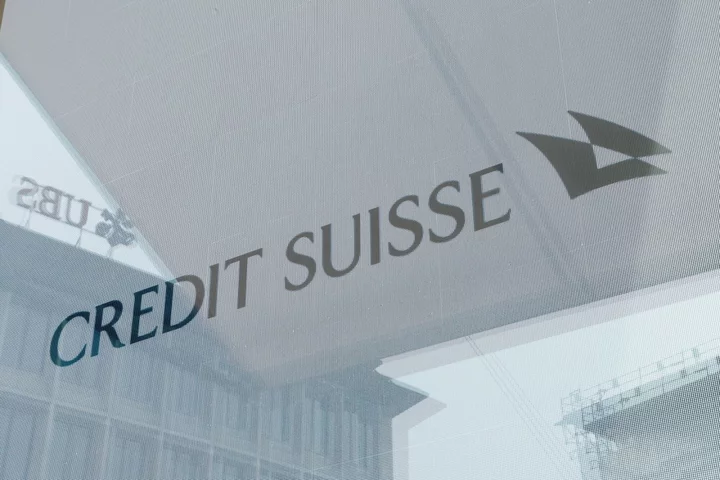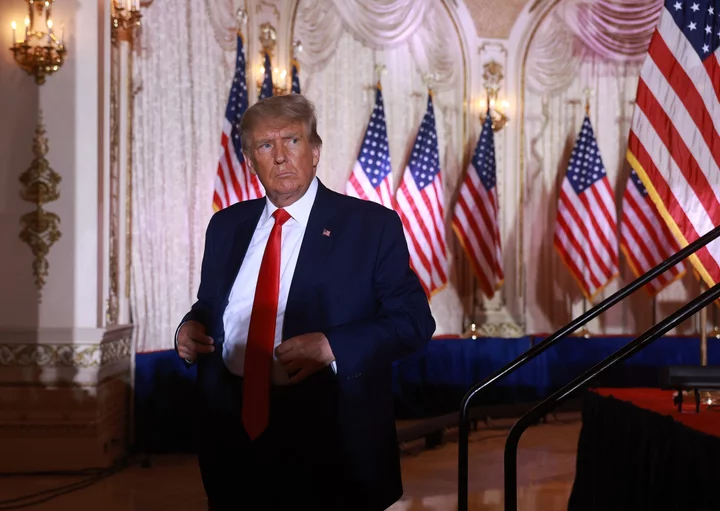Three weeks ago, Keir Starmer was praised for showing grit in a speech to lay out his pitch to be Britain’s next prime minister, taking off his jacket and rolling up his sleeves after a protester covered him with glitter.
On Tuesday, the Labour leader attempted to demonstrate similar resolve as he rejected growing calls from within his party to push for a cease-fire in the Israel-Hamas conflict. It’s a dispute that poses the biggest challenge to Starmer’s leadership since he became the clear front-runner ahead of an election expected in 2024.
Starmer again insisted on calling for “humanitarian pauses” to allow aid to reach stricken Palestinians in Gaza. A full cease-fire, he argued, would leave Hamas — designated a terrorist organization by the UK and others — still able to attack Israel.
“You cannot freeze that situation without effectively denying a sovereign state the right to self-defense,” he said.
The speech in London keeps Starmer aligned with Prime Minister Rishi Sunak and US President Joe Biden, as well as other Western governments. It was also a clear signal to voters that Labour’s prevarication on foreign policy issues — a feature under Starmer’s predecessor, Jeremy Corbyn — was a thing of the past.
Still, it’s a gamble. Much hinges on whether discontent within Labour deepens and exposes rifts in Starmer’s cabinet-in-waiting. Local councilors have quit the party in Glasgow, Manchester and Oxford and the mayors of London and Manchester, Sadiq Khan and Andy Burnham, have publicly broken from Starmer’s line. But the dispute so far hasn’t led to resignations from the shadow cabinet.
“Anything that makes Keir Starmer look weak and Labour look divided has the potential to be quite damaging,” said Keiran Pedley at polling firm Ipsos. “You can decide you want to project strength and you can decide you want to project competence on these sorts of things. But if ultimately you have to U-turn three weeks later, for whatever reason, then that all goes out the window.”
Hours after Starmer spoke, an Israeli strike on the Jabaliya refugee camp in Gaza drew condemnation from across the Middle East. The bombardment killed and wounded hundreds of Palestinians, according to the Health Ministry in the Hamas-run strip. It’s the sort of event that could add to the pressure the Labour leader is under.
Events have moved rapidly since the party’s annual conference in Manchester this month. While Hamas’s attack overshadowed the event, it also underscored just how much Starmer’s Labour had moved on from the Corbyn era, which was dogged by allegations of anti-Semitism. A minute’s silence for Israel’s victims was viewed as unthinkable under the previous leadership.
Tensions in Labour and Muslim communities across the UK emerged as Israel launched strikes on Gaza. A Starmer radio interview triggered criticism after he appeared to back Israel’s “right” to cut off power and water from Gaza. He later said he was misinterpreted and didn’t mean to back a siege. But on Tuesday, Labour’s leader in Scotland, Anas Sarwar, told the Daily Record that Starmer’s original remarks hurt Muslim communities, leaving the party with “repair work to do.”
“This is the most serious crisis he has had as leader, and it’s the one which most accurately reflects what being in office is like,” said Martin Farr, senior Lecturer in contemporary British history at Newcastle University. “I think its demonstrated his inexperience, actually.”
There was little sign of further dissent following Starmer’s speech, however. Senior Labour politicians who had called for a cease-fire were silent on social media, while key shadow cabinet members, including foreign affairs spokesman David Lammy and international development spokeswoman Lisa Nandy, posted or re-posted supportive statements.
Starmer’s approach appears aimed at preventing criticism of Labour, especially from a right-wing press that would likely jump on any sense the opposition party was undermining the Conservative government. Yet he also included in his speech an implied criticism of Israel’s current and past actions, including “unacceptable” settlement building and a warning that Palestinians shouldn’t be forced to leave their homes “en masse.”
“The right to self-defense is fundamental but it is not a blank check,” he said. “The supply of basic utilities like water, medicines, electricity and yes, fuel to civilians in Gaza cannot be blocked by Israel.”
He also delivered a dose of statesmanship, accusing Western governments of taking their eye off the ball in the region and calling for a renewed focus on a two-state solution.
“It will mean engaging with our Arab partners, working urgently on viable plans for a Palestine free from the terrorism of Hamas,” he said. “The reality is that neither the long-term security of Israel nor long-term justice for Palestine can be delivered by bombs and bullets.”
Starmer is likely to be encouraged by the fact that even though his and Sunak’s approval ratings have fallen, Labour’s lead over the Conservatives has remained intact or even widened. The knock on him as a leader is frequently that voters don’t know what he stands for. But asked by a reporter if the dispute over Israel-Hamas was “tearing your party apart,” he pushed back.
“Nobody in the Labour Party is making any other case than that we have got to alleviate the suffering,” he said. “We have got to speak out for Israel’s right to self defense, and we’ve got to alleviate the suffering. So there’s complete unity on that.”
--With assistance from Alex Morales.
(Updates with refugee camp strike, Sarwar comments starting in eighth paragraph.)

